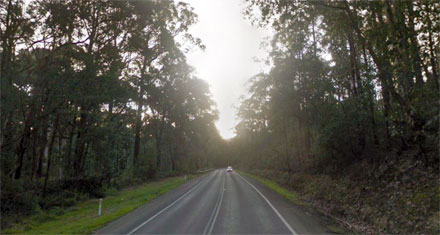
The Victorian Environment Assessment Council (VEAC) has been accused of ignoring its legal obligations with its final report into Victoria’s Central West, while the forestry industry has condemned its recommendations. The VEAC report, released last week, dramatically cut the timber industry while massively expanding parks and reserves. Source: Philip Hopkins for Timberbiz
Mark Poynter, a forestry author, consultant and a Fellow of the Institute of Foresters of Australia, said the agency had not listened to local communities and had pushed a conservation when it was meant to independently assess public land use.
“This is a clear breach of the VEAC Act (2001), which requires VEAC to adhere to the principles of ‘ecologically sustainable development’,” he said. A key objective of this concept was to ‘enhance individual and community well-being’.
“However, VEAC’s recommendation to slash the state forest area by 90% was opposed by a substantial majority of people in local communities who relied on the forests for various public services and life-style activities,” he said.
The Victorian Association of Forest Industries said the proposals would have a severe impact on local harvesters and processors. The Mt Cole State Forest, which supplies most of the wood to Pyrenees Timber, will be reduced by 44%, while 3099 hectares of Pyrenees Ranges state forest is retained to offset the area lost from Mt Cole.
“The problem is that the sawlog quality in the Pyrenees Ranges is of a lower quality and diameter than compared to Mt Cole,” said Pyrenees timber owner, Ian Crick.
“Sawlog quality is more important than volume. If the recommendations are accepted, then this will have a devastating effect on the viability of my business and the businesses supported …down the supply chain.”
Mr Poynter said the IFA strongly supported biodiversity conservation. This was already catered for, with most of the forest already reserved or not used commercially, he said. VEAC had ignored the widespread support for the current land management approach to focus on biodiversity at the exclusion of all else.
“It has not explained why the current mix of public land categories is unacceptable and what threats to biodiversity, if any, will be alleviated by the land tenure changes that it is recommending,” he said.
“The critical threats to these forests, such as unnatural fire regimes, pest plants, feral carnivores and climate change do not respect land tenure boundaries.”
Mr Poynter said these threats required active forest management. Changing the land category would do “absolutely nothing” to address them. “The notion promoted by VEAC that only parks and reserves can ‘protect’ the environment, is a complete nonsense,” he said.
VEAC’s final recommendations provided only an illusion of environmental protection.
“The Institute calls on Minister d’Ambrosio to ignore these recommendations and demand that VEAC drop its conservation agenda by following its legislated charter,” he said.
VAFI chief executive, Tim Johnston, said business needed a long-term sustainable industry plan.
“The ongoing uncertainty is having a detrimental effect on the mental health of many,” he said. “VEAC has not made an adequate socio-economic assessment of the impacts of these proposals which VAFI strongly recommended during the investigation. This timber is harvested and processed by community businesses. Reducing this supply will severely impact livelihoods.”






